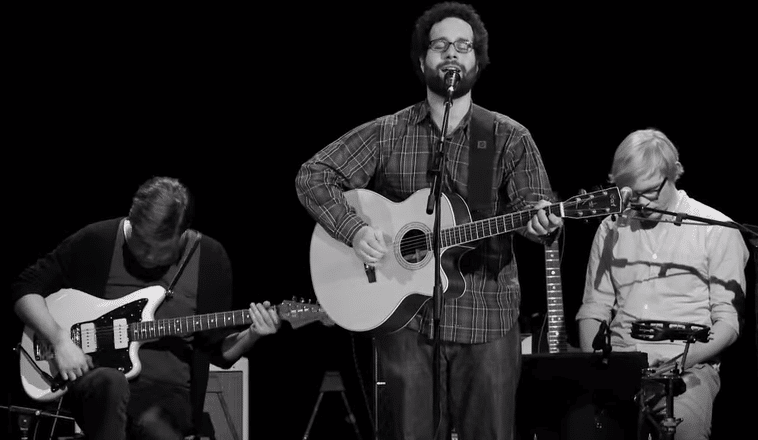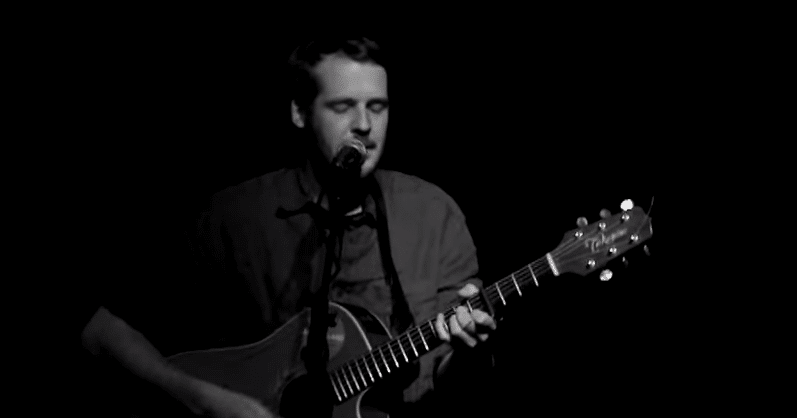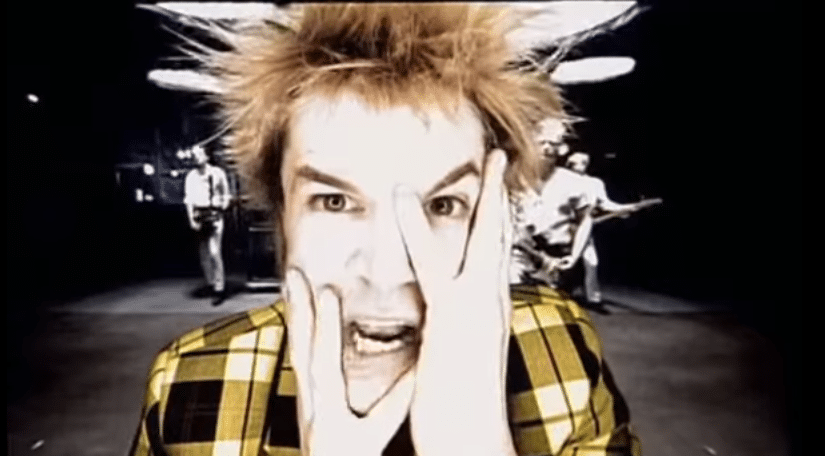Wednesday, August 31, 2016
35 German Verbs - Speaksli - Animated
beginnen
bringen
denken
erreichen
erklaeren
fahren
fallen
finden
fuehlen
folgen
geben
gewinnen
haben
halten
helfen
interessieren
kommen
koennen
leben
legen
lernen
liegen
machen
muessen
sagen
scheinen
sehen
setzen
sitzen
sprechen
stehen
studieren
suchen
warten
wissen
Nicht fuer mich Mannheim - Mine mit Orchester
MINE - Nicht fuer mich
Irgendwas in meinem Haus,
atmet meine Luft.
Ich hab's probiert
und wieder ausgespuckt.
Irgendwas in meinem Haus,
liegt auf mir.
Der große Stein in meinem Hals
ist blockiert. wahr = true
Du bist wahr, wahr, ja, wahr- wahrscheinlich = probably
scheinlich,
bist du nicht,
für mich.
Oh-lei-oh-lei-ooh-lei-oh-leie- oh-lei.
Das Luftschloss in meinen Händen,
ich hab's zerdrückt.
Ich bin wieder bei mir,
du bist nicht.
Wahr, wahr, ja, wahr-
-scheinlich
bist du nicht,
für mich.
Oh-lei-oh-lei-ooh-lei-oh-leie-oh-lei-oh-jo-lei-oh-lei-oh-leie-oh[...].
Irgendwas in meinem Haus,
atmet meine Luft.
Ich hab's probiert
und wieder ausgespuckt.
Irgendwas in meinem Haus,
liegt auf mir.
Der große Stein in meinem Hals
ist blockiert. wahr = true
Du bist wahr, wahr, ja, wahr- wahrscheinlich = probably
scheinlich,
bist du nicht,
für mich.
Oh-lei-oh-lei-ooh-lei-oh-leie- oh-lei.
Das Luftschloss in meinen Händen,
ich hab's zerdrückt.
Ich bin wieder bei mir,
du bist nicht.
Wahr, wahr, ja, wahr-
-scheinlich
bist du nicht,
für mich.
Oh-lei-oh-lei-ooh-lei-oh-leie-oh-lei-oh-jo-lei-oh-lei-oh-leie-oh[...].
Sportfreunde Stiller: 3 Lieder: Applaus, Applaus; Ein Kompliment ; Lass mich nie mehr los
Mit Texten dabei!
und: Lass mich nie mehr los!
Songtext:
Wie New York ohne Sinatra -
Wie Wien ohne den Prater -
Wie ein Herzschlag ohne Blut -
Wie Lindenberg ohne Hut -
Wie ne Eiszeit ohne Schnee -
England ohne Tee,
So als ob bei Steve McQueen die ganze Coolheit fehlt.
Jeder Boxer braucht ne Linke,
Kiss braucht viermal Schminke
Tonic braucht Gin.
Wie wär ein Leben ohne Sinn?
Wie ein leeres Paket
Wie ein Rad das sich nicht dreht
So als ob anstatt nem Sturm nur ein leichter Wind weht
REFRAIN:
So bin ich ohne dich,
Du hältst mich? - Mir fehlt nichts!
Lass mich nie mehr los!
Lass mich, lass mich nie mehr los!
Lass mich nie mehr los!
Lass mich, lass mich nie mehr los!
Wie das All ohne Planeten
Astronauten ohne Raketen
Paul Newman ohne Clou
Old Shatterhand ohne Winnetou
Wie ein Dieb der nicht stiehlt
Wie ein Wort das nicht zählt
So als ob dem Alphabet ein Buchstabe fehlt
REFRAIN:
Lass mich nie mehr los
Lass mich, lass mich nie mehr los
Lass mich nie mehr los
Lass mich, lass mich nie mehr los
So bin ich ohne dich
So bin ich ohne dich
So bin ich ohne dich (wie ein Herzschlag ohne Blut)
So bin ich ohne dich (lass mich nie mehr los!)
Tuesday, August 30, 2016
Fossilfund: Südelefant, Steppen- oder Wollhaarmammut?

Der Stoßzahn wird vorsichtig freigelegt und für die Bergung vorbereitet.
Bild: APA/NHM WIEN/URSULA GÖHLICH ----------Die Presse.com 29. August 2016
Bild: APA/NHM WIEN/URSULA GÖHLICH ----------Die Presse.com 29. August 2016
Noch rätseln die Forscher, zu welcher Art von Mammut die zwei Stoßzähne und die Wirbelknochen gehören, die auf der Autobahnbaustelle im Bezirk Mistelbach gefunden wurden.
(DiePresse.com)
So selten kommt es gar nicht vor: Zirka die Hälfte aller fossilen Skelettfunde in Österreich werden rein zufällig entdeckt. Das gilt auch für jenen, der sich – wie nun bekannt wurde – Mitte August in der Nähe von Bullendorf (Bezirk Mistelbach, Niederösterreich) ereignete. Bei Vorarbeiten für den Bau der Verlängerung der Nordautobahn A5 sah ein Experte der Geologischen Bundesanstalt, die routinemäßig solche Baustellen untersucht, etwas aus dem Hang hervorblitzen: die Spitze eines Mammutstoßzahns.
In einer mehrtägigen Notgrabung durch das Team der Geologisch-Paläontologischen Abteilung des Naturhistorischen Museums (NHM) wurden – mit Hilfe eines Asfinag-Baggers – dann zwei mächtige, zirka 2,5 Meter lange Stoßzähne und einige Wirbelknochen geborgen. Zu welcher Art von Mammut sie gehören, ist aber noch ungewiss.
In einer mehrtägigen Notgrabung durch das Team der Geologisch-Paläontologischen Abteilung des Naturhistorischen Museums (NHM) wurden – mit Hilfe eines Asfinag-Baggers – dann zwei mächtige, zirka 2,5 Meter lange Stoßzähne und einige Wirbelknochen geborgen. Zu welcher Art von Mammut sie gehören, ist aber noch ungewiss.
In Frage kommen für Ursula Göhlich, Paläontologin und Expertin für fossile Elefanten im NHM, drei verschiedene:
1. Die spektakulärste und älteste Variante wäre ein Südelefant. Er war de facto unbehaart und lebte vor drei Millionen bis 700.000 Jahren in ganz Eurasien, hatte eine Schulterhöhe von fünf Metern und wurde bis zu acht Tonnen schwer.
2. Ähnlich groß, aber jünger und etwas behaarter wäre Option Nummer zwei: das Steppenmammut (1,7 Millionen bis 500.000 Jahre).
3. Möglich wäre drittens auch, dass die Knochen zu einem „klassischen“ Mammut gehören, dem zotteligen Wollhaarmammut. Es lebte in unseren Breiten vor 150.000 bis 15.000 Jahren. Es war mit einer Schulterhöhe von 2,5 Metern und einem Gewicht von bis zu 6 Tonnen deutlich kleiner.
1. Die spektakulärste und älteste Variante wäre ein Südelefant. Er war de facto unbehaart und lebte vor drei Millionen bis 700.000 Jahren in ganz Eurasien, hatte eine Schulterhöhe von fünf Metern und wurde bis zu acht Tonnen schwer.
2. Ähnlich groß, aber jünger und etwas behaarter wäre Option Nummer zwei: das Steppenmammut (1,7 Millionen bis 500.000 Jahre).
3. Möglich wäre drittens auch, dass die Knochen zu einem „klassischen“ Mammut gehören, dem zotteligen Wollhaarmammut. Es lebte in unseren Breiten vor 150.000 bis 15.000 Jahren. Es war mit einer Schulterhöhe von 2,5 Metern und einem Gewicht von bis zu 6 Tonnen deutlich kleiner.
 Bild vergrößernDas Paläontologen-Team des Naturhistorischen Museums Wien bei der Bergung eines der Stoßzähne. Der Fund wurde mit Gips ummantelt. / Bild: APA/NHM WIEN/URSULA GÖHLICH
Bild vergrößernDas Paläontologen-Team des Naturhistorischen Museums Wien bei der Bergung eines der Stoßzähne. Der Fund wurde mit Gips ummantelt. / Bild: APA/NHM WIEN/URSULA GÖHLICH
Warum die Identifikation so schwierig ist? „Weil die Backenzähne fehlen. Die braucht man, um die Mammuts zu unterscheiden“, sagt Göhlich. DNA-Proben sind bei nicht tiefgefrorenen, so alten Tieren übrigens sinnlos. Aufschluss über das Alter können aber die Sedimentablagerung rund um das Skelett geben. Die Fundstücke selbst sind sehr empfindlich – vor allem die Stoßzähne. Die würden „förmlich explodieren“, wenn sie an der Luft trocknen, so Göhlich. Für den Transport wurden sie in Gipsbandagen, die feucht gehalten werden müssen, eingewickelt. Im NHM werden sie zum Präparieren in eine „Art flüssige Kleberlösung“ eingelegt. Erst dann startet die wissenschaftliche Untersuchung. Welche Art es letztlich ist, wird man erst in einigen Monaten wissen.
„Eine große Sache“
Die Stoßzähne und Knochen werden Teil der Sammlung des NHM, die nicht öffentlich zugänglich ist – außer bei „Hinter den Kulissen“-Führungen. Eine solche ist für November geplant. Hier sollen die Stoßzähne bereits zu sehen sein. Funde von Mammutskeletten gab es in Österreich immer wieder, ein vollständiges wurde nie entdeckt, nur Teile. Insofern seien die beiden gefundenen Stoßzähne „eine große Sache“, sagt Göhlich.
 Bild vergrößernUm welche Mammut-Art es sich handelt, muss erst geklärt werden. / Bild: APA/NHM WIEN/URSULA GÖHLICH
Bild vergrößernUm welche Mammut-Art es sich handelt, muss erst geklärt werden. / Bild: APA/NHM WIEN/URSULA GÖHLICH Sunday, August 28, 2016
Romantic Phrases to try out in German

--Dank, FluentU!! -- By amandaplantekropp
10 Romantic German Phrases to Impress Your Crush
Why Learn Romantic German Phrases?
In the interest of full disclosure, I am an American who moved to Germany and married a German. When I was still learning the difference between accusative and dative case back in college, learning romantic phrases was not my top priority. But here I am, using them daily. That being said, let’s take a look at all the great reasons to focus yourself on these matters of the heart.- Romantic phrases will expand your vocabulary and boost comprehension.
If you ever listen to German songs or watch German TV,
you’ll eventually hear some love language. In many dramatic stories,
the characters are bound to be entangled in romantic affairs. How else
will you know what’s going on? Even while reading German novels, these are phrases that will pop
up from time to time. It’s important to know the true meaning of what’s
being said so that you can appreciate the stories or songs to their
fullest potential.
- They’re more commonly used than you may think.
Beyond the world of fiction, imagine how
not understanding affectionate phrases might change your understanding
of the people around you. The parents in your German homestay family
might be lavishing each other with sweet words, and you would never
fully know what a lovely relationship they have built in their home. A
suave German coworker may be trying to flirt with you, and you would be
totally oblivious to their advances! Don’t leave yourself out of the
loop.
- It’s better to be safe than sorry!
Before traveling to Germany and seeing some spectacular German landmarks, I bet you’re more worried about learning simple greetings, essential German vocabulary for survival and
other basic elements of the language. So, why should you devote your
time and energy to romantic German phrases – especially when Germans
have earned a less than romantic reputation worldwide?
There are more than 100 million German speakers in the
world, and most of us are quite happy. We have crushes, girlfriends,
boyfriends, wives and husbands. While traipsing around Germany, who
knows who you’ll end up meeting? What if the man or woman of your dreams
starts wooing you, and all you can do is tell time?
- They’ll make German more fun.
You can also throw around these phrases
with that special someone just for fun, or to spice things up. If
there’s a cute classmate in your German course, or someone who catches
your eye while on vacation in Germany, why not show off your skills?
Even if you have a significant other who speaks no German at all, you
can practice with them by teaching him or her these phrases.
Opinions are divided on this just as they are in English, but I advise you to take this phrase seriously and use it with care. You might love baseball or chocolate or shopping (Ich liebe Baseball, Schokolade and Einkaufen, respectively), but declaring your love for another person is a big deal. German speakers of a younger generation, especially girls, will often say this among friends, but it’s not something you should ever say to someone you just met.
Phrase dictionaries may translate the phrase as “I love you,” but it’s less formal. I’d equate it to something like “love ya” based on the connotation. This sentence is fine to say to close friends, family members and romantic interests alike. It just doesn’t come on as strong or have the same connotation of passion as “Ich liebe dich.” This is why you’re slightly less likely to hear it in romantic songs. One of its most notorious usages was in this wacky song from 1998: Guildo hat euch lieb (Guildo Loves Y’all).
However, if you’re directly asking someone to be your Freund/in, the context is clear. This is one of the most straightforward ways of asking someone to start a romantic relationship with you.
If you’re looking to make the context clear to distinguish your platonic friends, you can always refer to someone as “ein Freund/eine Freundin von mir” (a friend of mine) rather than “mein Freund/meine Freundin.” Just remember to keep the genders straight too!
There are entire lists of pet names you could dig up, ranging from “sweetie” and “angel” to “mouse” and “snail.” There was even one German politician, Bavarian minister-president Edmund Stoiber, who referred to his wife as Muschi in speeches and interviews. While on the surface this is childlike language for “pussycat,” a more adult connotation of that word applies in German as well as English. Personally, I’d be more likely to take this as a demeaning insult than a term of endearment!
A German, who wants to be really proclaim a special relationship, will seriously consider buying for their loved one a heart shaped necklace in (wrapped) gingerbread, or "Lebkuchenherz", complete with the appropriate endearment written in icing.
[But never fear, it's okay in a relationship in Germany to say “baby” or “honey” too, if it sounds natural, and feels right to you. Good luck finding those phrases on a "Lebkuchenherz"-cookie!]
This phrase has a slightly stronger sexual connotation than simply saying you like or love something or someone. As a result, you’d never say something like “Ich steh’ auf meine Oma” (I’m into my grandmother). Be careful with this phrase.
Now you know the essentials of flirting, declaring your feelings and separating your platonic connections from your romantic ones – all in German. It doesn’t matter whether you actively use these sayings to put the moves on someone or if you simply begin to recognize them in the world around you. Either way, reviewing these phrases regularly will improve your German. You’ll start to sound more authentic than ever, because let’s face it, most textbooks and travel guides don’t cover this stuff! So study hard, and viel Glück (good luck) with all of your German romantic endeavors!
10 Romantic German Phrases to Impress Your Crush
1. Ich liebe dich. (I love you.)
This is it. The essential phrase. The “three little words.”Opinions are divided on this just as they are in English, but I advise you to take this phrase seriously and use it with care. You might love baseball or chocolate or shopping (Ich liebe Baseball, Schokolade and Einkaufen, respectively), but declaring your love for another person is a big deal. German speakers of a younger generation, especially girls, will often say this among friends, but it’s not something you should ever say to someone you just met.
2. Ich hab’ dich lieb. (sort of: You're my special someone; more casually: Love ya.)
If you want to express affinity without the full impact of the “three little words,” here’s your alternative.Phrase dictionaries may translate the phrase as “I love you,” but it’s less formal. I’d equate it to something like “love ya” based on the connotation. This sentence is fine to say to close friends, family members and romantic interests alike. It just doesn’t come on as strong or have the same connotation of passion as “Ich liebe dich.” This is why you’re slightly less likely to hear it in romantic songs. One of its most notorious usages was in this wacky song from 1998: Guildo hat euch lieb (Guildo Loves Y’all).
3. Willst du mein Freund/meine Freundin sein? (Do you want to be my boyfriend/girlfriend?)
The word Freund can mean either a platonic male friend or a boyfriend, and Freundin can mean either a platonic female friend or a girlfriend. Context is everything.However, if you’re directly asking someone to be your Freund/in, the context is clear. This is one of the most straightforward ways of asking someone to start a romantic relationship with you.
If you’re looking to make the context clear to distinguish your platonic friends, you can always refer to someone as “ein Freund/eine Freundin von mir” (a friend of mine) rather than “mein Freund/meine Freundin.” Just remember to keep the genders straight too!
4. Willst du mit mir gehen? (Do you want to go out with me?)
If you’re looking to avoid the context- and gender-specific pitfalls of “Willst du mein Freund sein?”, then this informal sentence is for you. This question refers to dating someone, either in the sense of simply going on a date or in the sense of having a relationship. Ever heard of the hit song, 99 Red Balloons? It was a German hit first, by Nena. She called it 99 Luftballons. Anyway, #4 is the title of her thirteenth album.5. Schatz, Liebling, Kuschelbär (pet names)
I have to admit that I don’t use these in my relationship and hear them very seldom from others. When I do hear any of them, it’s usually Schatz, which literally translates to "treasure." Liebling translates to “favorite” or “beloved,” while Kuschelbär means “cuddle bear.”There are entire lists of pet names you could dig up, ranging from “sweetie” and “angel” to “mouse” and “snail.” There was even one German politician, Bavarian minister-president Edmund Stoiber, who referred to his wife as Muschi in speeches and interviews. While on the surface this is childlike language for “pussycat,” a more adult connotation of that word applies in German as well as English. Personally, I’d be more likely to take this as a demeaning insult than a term of endearment!
A German, who wants to be really proclaim a special relationship, will seriously consider buying for their loved one a heart shaped necklace in (wrapped) gingerbread, or "Lebkuchenherz", complete with the appropriate endearment written in icing.
[But never fear, it's okay in a relationship in Germany to say “baby” or “honey” too, if it sounds natural, and feels right to you. Good luck finding those phrases on a "Lebkuchenherz"-cookie!]
6. Ich bin bis über beide Ohren verliebt. (I’m head over heels in love.)
Literally translated, this sentence means “I’m in love until over both ears,” but then the English version of being “head over heels” isn’t the most logical either. (When is your head ever under your heels?) As idioms without direct translations, their meaning is the same: you really, really, really like someone.7. Ich steh’ auf dich. (I’m into you.)
This is another loosely translated idiom for what literally involves the verb stehen, to stand. Be careful to use the accusative dich in this sentence rather than the dative dir. The latter would literally mean you’re standing on top of someone!This phrase has a slightly stronger sexual connotation than simply saying you like or love something or someone. As a result, you’d never say something like “Ich steh’ auf meine Oma” (I’m into my grandmother). Be careful with this phrase.
8. Du bist die Liebe meines Lebens. (You’re the love of my life.)
This is the most sentimental phrase on the list and, due to its intensity, it’s not one you’re likely to hear often. Its translation is literal and its meaning is strong. If you feel the need to get this feeling off your chest auf Deutsch, you now know how.9. Du hast wunderschöne Augen. (You have beautiful eyes.)
This phrase works equally well as a sweet compliment to your significant other and as a pick-up line in the club. As usual, it’s all about the context.10. Küss mich! (Kiss me.)
Here we see our only imperative or command form on the list: kiss me! Command forms in German are easy to use because the du-form usually just involves removing the –en from the verb, which here would be küssen (to kiss). If you’re looking to be a little less direct and demanding, “Kann ich einen Kuss haben?” (“Can I have a kiss?”) or "Küssen wir?" ("Shall we kiss?") will get you the same result… if you’re lucky, that is.Now you know the essentials of flirting, declaring your feelings and separating your platonic connections from your romantic ones – all in German. It doesn’t matter whether you actively use these sayings to put the moves on someone or if you simply begin to recognize them in the world around you. Either way, reviewing these phrases regularly will improve your German. You’ll start to sound more authentic than ever, because let’s face it, most textbooks and travel guides don’t cover this stuff! So study hard, and viel Glück (good luck) with all of your German romantic endeavors!
And One More Thing…With all this talk of flirting and romance, it would be perfectly understandable for you to confess your love for the German language right about now!
Was machst du in der Freizeit? Was machst du gern?
HIER SIND VIELE ANTWORTEN!
Wie antwortetest Du diese Frage? How do you answer this question?
Wie antwortetest Du diese Frage? How do you answer this question?
Saturday, August 27, 2016
Ich seh' dich.... ein a cappella Lied von Maybebop
Kaum Sterne sind zu sehen.
Die nächtlichen Lichter der Stadt sind zu hell.
Ich trockne deine Tränen,
und schau mit dir in des Himmels Pastell.
Ein Sturm hat dich bewegt.
Er traf dich hart, doch zerbrach er dich nicht.
Nun, da er sich gelegt,
streich ich die Haare dir aus dem Gesicht.
Trauer und Scheu in deinem Blick,
doch dahinter reines Licht.
Ich seh dich,
ich seh, wie vollkommen du bist,
Und sich das Dunkel verliert.
Ich seh dich
Nichts mehr, was zwischen uns ist
Und unendlich viel
was zwischen uns passiert.
Die Tränen sind versiegt,
schutzlos erstrahlst du so schön wie noch nie.
Der Raum um uns verfliegt,
Schwerelos ziehen wir durch die Galaxie.
Dass es noch weitere Menschen gibt,
ist im Moment nur Theorie.
Ich seh dich,
ich seh, wie vollkommen du bist,
und sich das Dunkel verliert.
Ich seh dich
Nichts mehr, was zwischen uns ist,
und doch unendlich viel ...
Ich seh dich
ich seh, wie vollkommen du bist,
und wie sich jedes Dunkel verliert.
Ich seh dich
Nichts mehr, was zwischen uns ist,
und unendlich viel
Was zwischen uns passiert.
Friday, August 26, 2016
Deutsch durch Musik! So kann man gut lernen!
Learn German with Music:
10 Songs with Hidden German Grammar Lessons
What I like about this article by CAITLIN HARDEE Published By FluentU August 24, 2016is that the author suggests ways to focus on the language and grammar, while listening to (or reading--yes, I expect several of these songs will make it to the classroom) the text. -rsb

It’s test time in German class, but your mind is a total blank.
How are you supposed to remember all those convoluted rules in your textbook?
Try a new tactic and learn the lyrics of these awesome songs. The human brain has a much easier time remembering words attached to music. German songs can be like flashcards without the tedium, guiding you through the grammatical jungle with concrete examples of how the language actually works.
Don’t be caught off guard the next time the German teacher springs a pop quiz on you! Take these helpful songs for a spin, and you’ll have yourword order, cases and more memorized before you know it.
Download: This blog post is available as a convenient and portable PDF that you can take anywhere.
Click here to get a copy. (Download)
Click here to get a copy. (Download)
Learn German with Music:
10 Songs with Hidden German Grammar Lessons
1. Noun Declination: Annett Louisan – Mama will ins Netz
A sweet, upbeat ditty with plenty of humor and fond mockery.
The scenario: The singer-songwriter’s mother ventures into the world of computing for the first time, hoping to figure out the process of sending an email. Louisan helps her on the phone, providing instructions.
Plenty of nouns, so plenty of article declination.
-- What to do mit der Maus (with the mouse)?
-- Mit dem Karton (with the box)?
-- Was hast du denn für ‘nen Provider (so what kind of provider do you have)?
-- Mama has no idea. Die Hoffnung stirbt zuletzt (Hope dies last).
-- What to do mit der Maus (with the mouse)?
-- Mit dem Karton (with the box)?
-- Was hast du denn für ‘nen Provider (so what kind of provider do you have)?
-- Mama has no idea. Die Hoffnung stirbt zuletzt (Hope dies last).
2. Adjective Declination: Wirtz – Im freien Fall
Hard-rocking, compelling song about thinking critically and speaking the uncomfortable truth, even when it’s unpopular.
Daniel Wirtz uses vividly descriptive language, so we can observe how adjective endings change form with different cases. He starts with the image of mentale Müllentsorgung (mental trash disposal).
He employs dative and accusative declination of neutral-gender adjectives:
--Zieh’ mit dem schneidenden Wort, gegen das stumpfe Gelaber (move with the cutting word against the dull babble).
-- He presents his personal philosophy in reinster Form (in purest form)
-- as he describes das Leben im freien Fall(life in free fall).
Also a good example of adverbs.
He employs dative and accusative declination of neutral-gender adjectives:
--Zieh’ mit dem schneidenden Wort, gegen das stumpfe Gelaber (move with the cutting word against the dull babble).
-- He presents his personal philosophy in reinster Form (in purest form)
-- as he describes das Leben im freien Fall(life in free fall).
Also a good example of adverbs.
3. Prepositions: Herrenmagazin – Der langsame Tod eines sehr großen Tieres
Zu, über, unten, in, vor, aus, bei (to, over, under, in, before, out, at) – this song is full of those luscious German prepositions. As the indie rockers from Hamburg paint a dark and abstract picture of dysfunctional love, you can cement in your brain the diverse ways in which prepositions act upon possessive pronouns, articles and adjectives.
Also, the lyrics provide examples of imperative form in the second-person plural (you-all-guys).The live acoustic version of the song on TV Noir, with a slower tempo and black-and-white aesthetic, is particularly lovely and haunting.
4. Two-way Prepositions and the Dative Case: Andreas Bourani – Eisberg
Learning to sort out the proper form – accusative or dative – of two-way prepositions is key. While some prepositions are always clear – durch (through) and gegen (against) are accusative, while aus (out) and mit (with) are dative – it’s easy to get two-way prepositions like in, auf and über (in, on and over) mixed up. Think of this song and remember:
-- Dative is used to describe where something is statically existing – the wo (where at) state.
--Accusative is used for movement – the directional or wohin (to where) state.
-- Dative is used to describe where something is statically existing – the wo (where at) state.
--Accusative is used for movement – the directional or wohin (to where) state.
This song shows many examples of the dative state, so you can refer back to it and work out the accusative by elimination, if ever confused.
Ich treib alleine auf dem Meer (I float alone on the sea) he sings, static state, with the dative particle dem. If he were to shove a boat into the sea and take off, it would be the directional accusative, (fahre hinaus) auf das Meer, shortened to aufs Meer (I’m sailing out onto the sea).
This song is also a good example of reflexive pronouns.
Ich treib alleine auf dem Meer (I float alone on the sea) he sings, static state, with the dative particle dem. If he were to shove a boat into the sea and take off, it would be the directional accusative, (fahre hinaus) auf das Meer, shortened to aufs Meer (I’m sailing out onto the sea).
This song is also a good example of reflexive pronouns.
5. Separable Verb Prefixes: Gisbert zu Knyphausen – Dreh dich nicht um
In this song, singer-songwriter Gisbert zu Knyphausen says goodbye to a failing romantic relationship. He tells his love gently to leave and not look back, and he employs a number of verbs with separable prefixes as he lays out the impending separation. Nimm deine Schuhe mit, he says – take your shoes with (you), the imperative form sending the “with” on the front of the infinitive verb mitnehmen (to take with) to the end of the clause.
The same rule returns as he applies the imperative to the verb umdrehen and tells her, dreh dich nicht um (don’t turn around) and with his construction based on the verb krummnehmen (take the wrong way), the imperative nimm sie uns nicht krumm (don’t take it wrongly). We also see a separable verb, einreden (talk into / persuade), staying whole, because the modal verb musst (must), at the start of a long sentence, keeps it united at the end of a subordinate clause.
6. Reflexive Verbs and Pronouns: Bushido “Zeiten ändern sich”
This belongs to that particular brand of rap song which glorifies the money and possessions the rapper has accumulated while sneering at his haters, who so clearly underestimated him back in the day.
All that self-involvement produces great examples of reflexive verbs and pronouns! As reflexive verbs have the same object and subject, “me me me” songs are perfect. For instance, Bushido can now buy himself (sich kaufen) all kinds of things if he wished, like an entire Lidl grocery store and a villa. Why? Because the times have changed (themselves) – Zeiten ändern sich.
7. Subjunctive I: Frittenbude – Bilder mit Katze
Subjunctive I (Konjunktiv I) can seem like a uselessly esoteric concept in language class, but it’s actually subtle, expressive and may end up being enormously helpful if you become professionally active in Germany. Why? It enables you to make passive assertions, relating unverified claims or hearsay without staking your own credibility on the statement, and is frequently used in journalism.
Good thing you have this catchy electro track with laconic hipster rap vocals to help you remember how the form works. Actually, there’s just one example – doch sie sei leider pleite (she was supposedly broke, unfortunately) – but the song is also packed with adjective declination, past tense verb conjugation, lots of slang and complex narrative lyrics, and the music video is utterly charming. Sei (subjunctive form of is) is basically the most important passive verb form anyway, along with habe(subjunctive form of have).
Watch the video, and then go buy a Polaroid camera and an Audiolith shirt. If you make it all the way to a Frittenbude concert, you can whip out your passive form humor and tell the merch guy: Man sagt, da draußen gebe es nichts wie dieses Shirt von Audiolith mit den schönen großen Buchstaben (they say there’s nothing out there like this shirt from Audiolith with the nice big letters).
8. Subjunctive II: Fräulein Wunder – Wenn ich ein Junge wär
Ah, subjunctive II (Konjunktiv II), the marvelous realm of theoretical, far-fetched possibilities and sheer imagination. What would you do if you were suddenly transformed from a girl to a boy? The ladies of Fräulein Wunder have a few ideas. Ich würd nur D-max gucken, und Jacky-Cola schlucken, ich würd mich selber küssen, und nur zum Spaß freihändig pissen – wenn ich ein Junge wär… (I would watch only D-max, gulp cola, kiss myself and piss with no hands for fun…) Drinking with Swedish girls, martial arts and donating sperm also make the list of subjunctive activities.
9. Possessive Pronouns and Genitive: Die Toten Hosen – Paradies
Once upon a time in Poland, I got to tell the members of Die Toten Hosen that their music had helped me learn German, and it wasn’t an exaggeration. Campino’s voice simply has an unforgettable quality – this song is no exception. If you want to learn the tricks of possessive form, spend a bit of time with these lyrics. They feature possessive constructions using the genitive form, both feminine and masculine: Die Hölle der Wiedergeburt (the hell of rebirth), im Buch des Lebens (in the Book of Life). Possessive pronouns also show up: The genitive dessen Chancen stehen nicht schlecht (his chances aren’t bad) and the basic accusative wer sein Schicksal mit Demut trägt (he who bears his fate with humility).
10. Imperative: Silbermond – Krieger des Lichts
A stirring song in general, and especially helpful if you’re studying the imperative form. Silbermond singer Stefanie Kloß is here to motivate the depressed and daunted listener, and she does it with a wide range of commands in second-person singular and plural.
Lasst uns aufstehen, macht euch auf den Weg, sei wie der Fluß, wenn dein Wille schläft, dann weck ihn wieder, hab keine Angst, fürchte nie, lass dich nicht täuschen, lerne zu fesseln und zu befreien (let us stand up, set out on the way, be like the river, when your will sleeps, wake it up again, never fear, don’t let yourself be deceived, learn to take hold and let go) – this song really spans the gamut of imperative verbs. Also, you’ll find some useful examples of possessive genitive.
Wednesday, August 24, 2016
Christian Pulisic - Borussia Dortmund
Christian is from Hershey, Pennsylvania. Heś a midfielder in Dortmund, as well as an active player on the US Menś National Team.
The Bundesliga Season is just getting underway, and our German Program has been selected as one school among 60 across the nation to compete in a monthly Bundesliga challenge. I expect that we will be coming to learn more about other strong players in the Bundesliga throughout the school year.
Meanwhile, let us focus on this US Soccer tweet about Pulisic and his goal Aug. 23, 2016 in a Friendly v. Croatia
The Bundesliga Season is just getting underway, and our German Program has been selected as one school among 60 across the nation to compete in a monthly Bundesliga challenge. I expect that we will be coming to learn more about other strong players in the Bundesliga throughout the school year.
Meanwhile, let us focus on this US Soccer tweet about Pulisic and his goal Aug. 23, 2016 in a Friendly v. Croatia
Subscribe to:
Posts (Atom)










